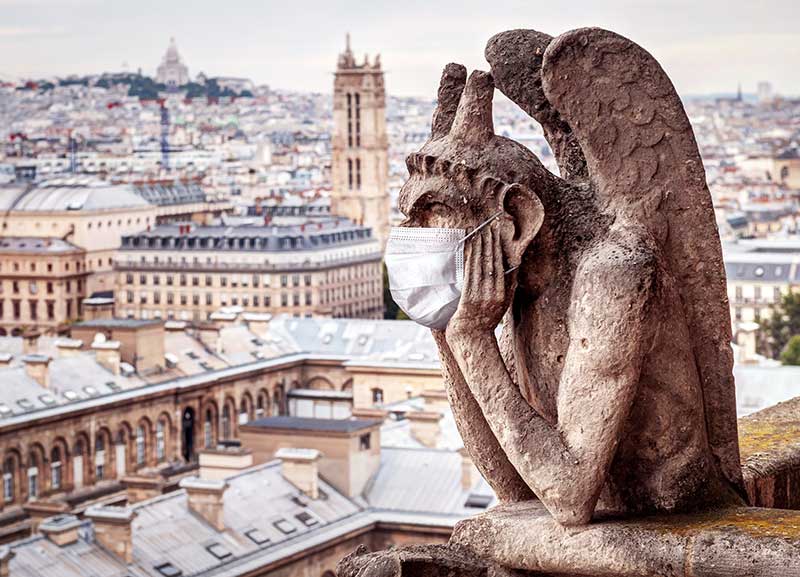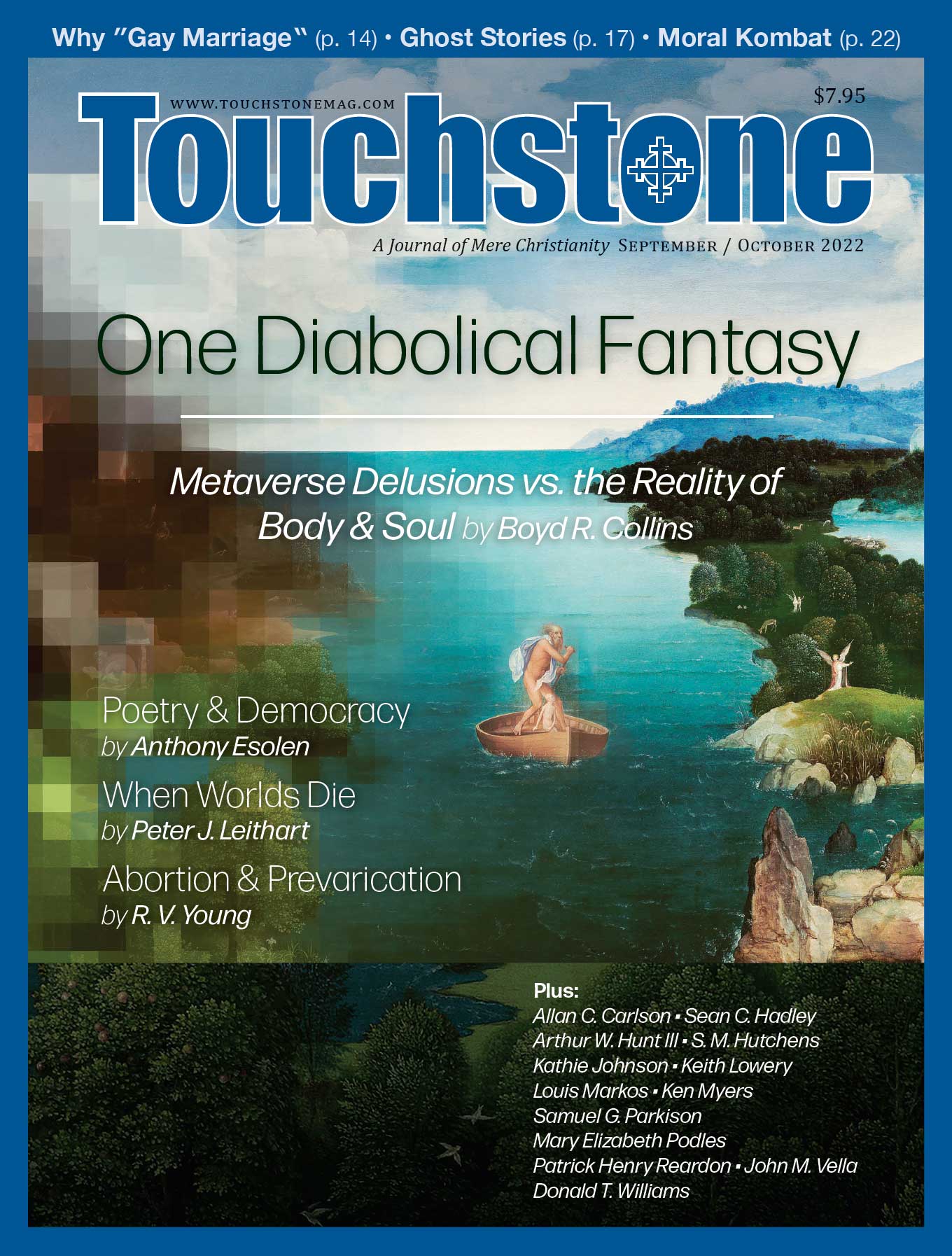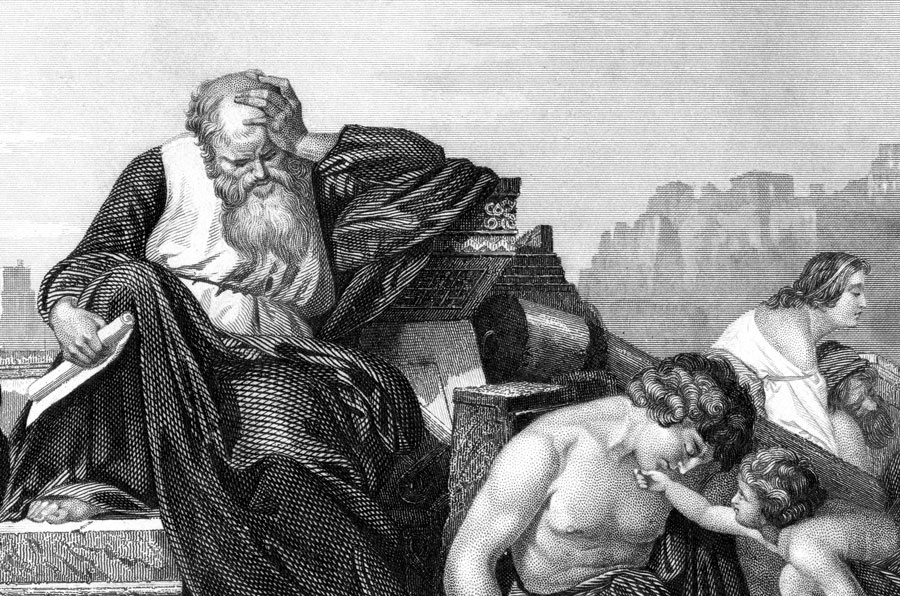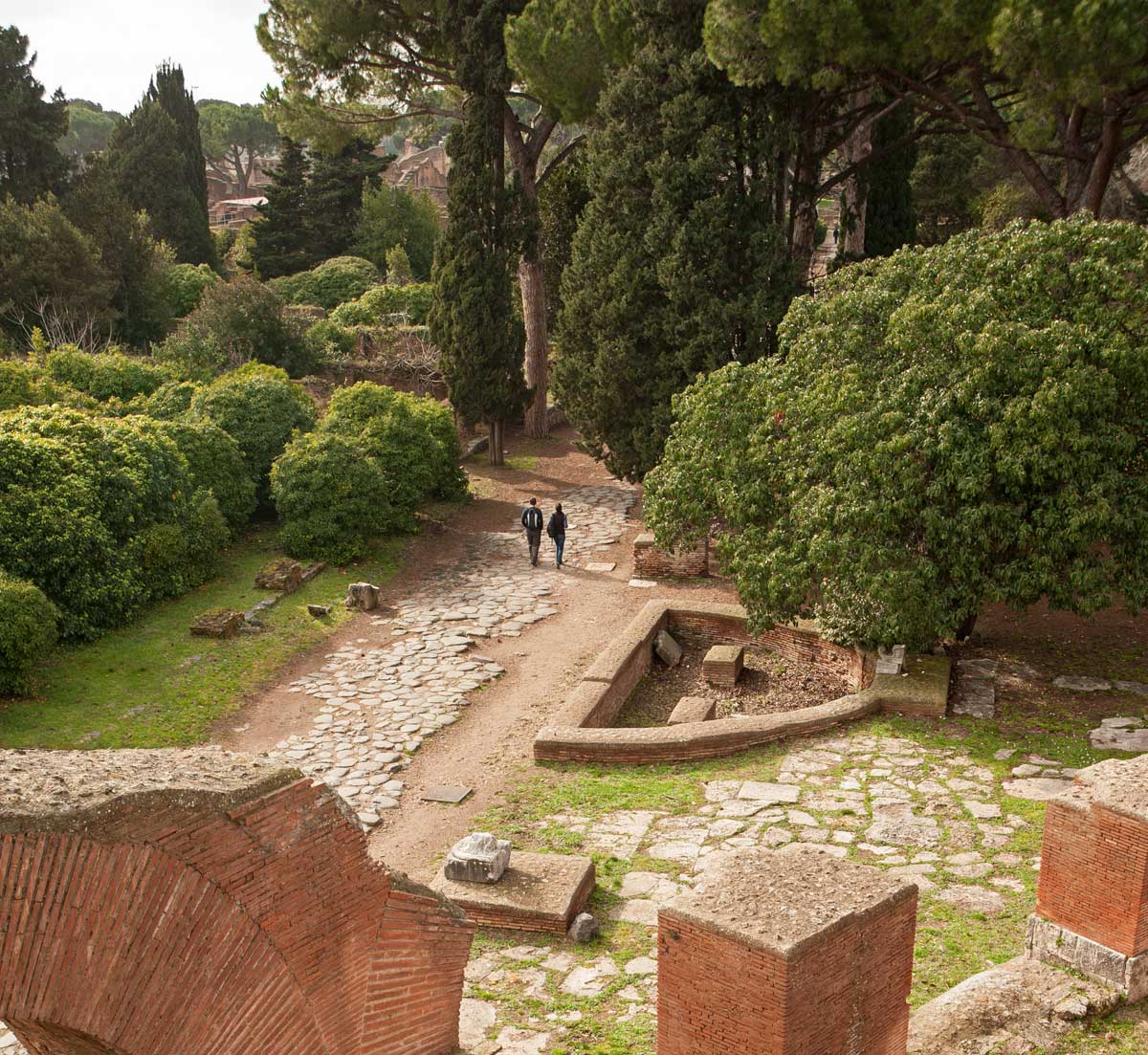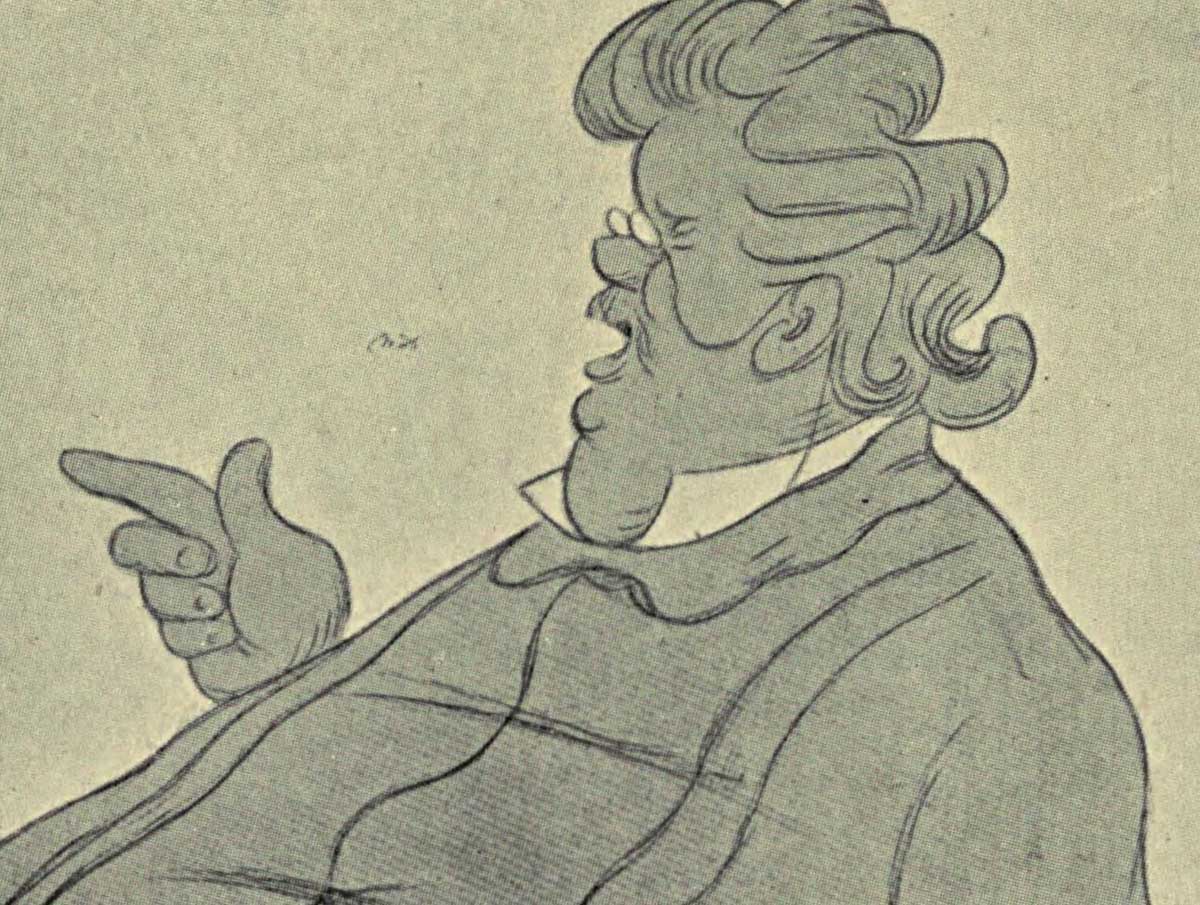Whence Wisdom?
Our Godless Narratives Are Pure Folly
The Covid pandemic has been, in a very real way, an apocalypse. I use the word apocalypse advisedly and not merely as a synonym for catastrophe. The Greek origin of the English word apocalypse means “to reveal, to uncover, to disclose.” Covid has been an unexpected revealing, a surprising uncovering of something that lay hidden.
Someone once said, “War doesn’t make heroes; it reveals them.” That’s a clever way of stating the truism that character precedes action. In other words, heroic actions reveal what was previously there, though as yet unseen. Covid has been similarly revealing of what lay hidden, though what has been revealed has not been, alas, particularly heroic.
Covid has shown us something unexpected about the fault lines in our society, to be sure. But it turns out that those fault lines existed even within our own more intimate social circles, not least within church communities. The tedious and predictable mainstream media typically assume that fault lines always fall neatly along left/right political boundaries. But that is not really how things have panned out with Covid.
Squandered Trust
One of the things that was surprising about Covid was the rapidity with which a thoroughgoing mythology appeared and immediately became entrenched. The entrenchment was helped along by ruthless enforcement at all levels of government, media, and business. The blitzkrieg of “right thinking” by almost all of those with their hands on the levers of power raised not only questions but alarms. Alas, Henry Adams’s memorable observation that “in all great emergencies . . . everyone is more or less wrong” was studiously ignored in the headlong rush to find solace in the speculations of “experts.”
Former New York Times columnist Bari Weiss has abandoned her earlier connection to mainstream media in preference for writing and publishing on Substack. She has also been publishing other writers there whom she deems as having something important to say. As it happens, these other writers include those whose thinking departs from the dominant Covid mythology. Recently Weiss published a piece that was at once enlightening and alarming. It was written by Jennifer Sey, a marketing executive and brand president at Levi’s who was forced out over her reaction to Covid policies (https://bariweiss.substack.com/p/yesterday-i-was-levis-brand-president).
In the post, Sey relates her story of advocating for children in the context of Covid, and how her advocacy eventually resulted in the loss of her job. What most interests me about her is that she is not a card-carrying member of those the media typically depict as the hairy unwashed. For one thing, she is not associated with the political right in any way. In practice, this means she is not a normal target for tarring by the media as an intellectual troglodyte. She is the very picture of the progressive left. Nevertheless, her unwillingness to embrace the government-sanctioned mythology regarding Covid, especially where her own children were concerned, combined with her determination to advocate for child safety, ended up costing her a lucrative job.
As Sey’s story illustrates, not everyone bought into the Covid mythology. The Covid fault lines revealed by the pandemic seem to reflect variations in how people react to complexity and to the widespread fear that often accompanies uncertainty. For some, the reaction has been to cling to the official storyline as a guide to the way forward. Some of those who clung to the rapidly formed Covid mythology have been surprisingly intolerant of those who did not—Sey being a recent victim.
Those who have taken an approach similar to Sey’s have been proactively attempting to unravel the complexity (and their own uncertainty) by examining the data for themselves. They are charting a course that reflects their own conclusions about the way forward. They have declined to outsource their personal judgment to the opinions of experts.
Many writers have remarked upon those who, like Sey, have lost faith in our institutions, and it seems likely that this loss of trust has contributed mightily to the skepticism of those who have come to view expert opinion with something of a gimlet eye. The watershed moment for losing trust in the healthcare bureaucracy may have been the BLM riots of 2020. At the very moment when the marching and burning and destruction caused by the rioters was being applauded by the healthcare bureaucracy, churches and schools and restaurants and small businesses of all kinds were being shut down. What this inescapably revealed to millions of people is that the healthcare bureaucracy has been busy concerning itself with things other than actual public health.
Trust, once squandered, is hard to regain.
Seeking Certainty
If the Jennifer Seys of the world are trying to find their way in the absence of trustworthy institutions, others still cling to the hope that the betrayal by the bureaucrats was limited in scope and that the official Covid mythology is, in any case, still trustworthy.
Any mythology is either helpful or harmful by turn, depending on how closely it tracks to reality. A mythology is just a framework for understanding one’s place in the world and interpreting events. If the framework is true, a mythology can act as a magnifying glass: even small things are made more obvious. But when a mythology is less connected to reality, it acts more like a funhouse mirror: one’s perception is distorted.
Perhaps we should not be surprised that so many have tightened their grip on the official messaging even though trust in institutions is declining. Viruses are overwhelmingly complicated. The science is actually uncertain. But many people don’t want the science to be uncertain. As moderns, we conceive of ourselves as technological masters of our domain. “Mystery is a great embarrassment to the modern mind,” as Flannery O’Connor observed. But this pandemic has delivered a massive torpedo to our tanker of modern hubris, right below the water line.
In response, we have attempted to patch the hole left by the Covid torpedo by reconstituting the definition of “science.” Any distinction between “the science” and the pronouncements of bureaucrats has been thoroughly blurred. And more than that, the opinions of health bureaucrats are increasingly viewed by many as not only reflecting a vaguely defined utilitarian good, but as amounting to an actual moral good. Even among Christians, the perspective has become widespread that masking, cancelled gatherings, and the so-called vaccines represent the sine qua non of concern for our neighbors. Elevating the official Covid storyline to the apex of moral virtue has the comforting advantage of relieving us of the burden of sifting through all the complex and scary uncertainty. But it also reassures us that, though we increasingly view those who bear the image of God primarily as vectors for the transmission of disease, we nevertheless have things under control and our virtue is still intact.
Hierarchy of Goods
But the problem with the Covid mythology, as set forth by the bureaucratic class, is that it is far from clear that Covid avoidance was ever considered within the hierarchy of other goods. We have been operating as if avoiding the risk of Covid is the paramount good among many different possibilities. There seems to have been little effort given by the authorities to a serious consideration of the collateral effects of their policies. The problem with the rapid-onset mythology surrounding Covid, then, is that it has been oddly detached from the realities of lives lived by actual flesh-and-blood human beings.
Christians have a longstanding reputation as preservers of life. Even in the earliest days of the Church, faithful Christians were known to be people who plucked abandoned infants off the rubbish heaps of the Roman empire, taking them home to raise as their own. But Christians have also understood that there is a hierarchy of goods within the universe of moral concerns, and that every good exists within that hierarchy. So even though Christians have advocated against the taking of life, the very existence of Christianity is itself a testament to the sacrificial virtue of giving one’s own life away.
Preserving human life is a high priority in Judeo-Christian thought, but it has never been the highest or only priority. It is for this reason that the response of some Christians during Covid has come as something of a surprise to me. It has caused me to wonder if the longstanding—and entirely appropriate—Christian pro-life ethic has somehow become absolutist in the minds of some.
Whatever the actual explanation, some Christians seem to have forgotten that, though taking an innocent life is always wrong, there are nevertheless some things worth dying for. One hears an echo of this idea in the commendation of those who fought the dragon in the book of Revelation: “They did not love their lives so much as to shrink from death” (12:11).
The prohibition against taking innocent life does not, then, change the fact that a willingness to risk our own lives is sometimes the measure of virtue. Jesus’ words, “Greater love has no man than to lay down his life for his brother” (John 15:13), spring immediately to mind. Perhaps we should have been more cautious about reshuffling the hierarchy of Christian virtues in such a way as to end up with self-preservation, mirabile dictu, sitting very near the top. Perhaps allowing Covid panic to stampede us into rationalizing self-interest as a Christian virtue was inadvisable. In many churches, erstwhile Christian priorities like baptism, the Eucharist, and the fellowship of the saints were abandoned for a long stretch of time. And, not to put too fine a point on it, this was done to avoid exposure to a virus that has a greater than 99 percent survival rate.
Prerequisite for Wisdom
This has left me wondering if the challenge we Christians have had navigating Covid has come about because, to some degree, we have forgotten where wisdom comes from. Fear of Covid seems to have led many to conflate wisdom with a pedestrian kind of technical expertise. But there is a vast chasm between knowing what the virus does and being able to discern which responses are humane and truly beneficial. (Actually, there has also been a large chasm between what the bureaucrats really know and what they claim to know. In the interests of maintaining a compliant population, the bureaucratic class seems to have consistently overstated both its competence and its expertise.)
The ability to differentiate between wisdom and folly depends upon the extent to which the conceptual model floating around in our heads accurately reflects the ground truth of our existence. When we read the words, “the fear of the Lord is the beginning of wisdom” (Prov. 9:10), the biblical text is telling us something about how reality itself has been arranged. It is telling us that obtaining wisdom is not possible unless pursued from a vantage point that embraces our proper place in relation to God. Thus, any possibility of obtaining wisdom depends on accepting these foundational truths about our existence.
A related idea shows up in the first chapter of the Apostle Paul’s Epistle to the Romans: “For although they knew God, they neither glorified him as God nor gave thanks to him, but their thinking became futile and their foolish hearts were darkened” (1:21). The two great failures that Paul attributes to the people he is describing are that (1) theyfailed to acknowledge God as God, and (2) theyfailed to give God thanks. The second failure necessarily flows from the first: gratitude can only emerge from the recognition that it is owed to someone. The obligation to acknowledge God and give him thanks sounds very much like the “fear of the Lord” described in other places.
What does the apostle suggest is in store for those who don’t honor and give thanks to God? Why, they lose the ability to reason well, if they are able to reason at all. The text actually says “their thinking became futile.” Our ability to think and reason is in some way, then, tied to the assumptions we make about God and our moral obligation to him. This, too, sounds awfully similar to “the fear of the Lord is the beginning of wisdom.”
So it appears that accepting the implications of God’s existence is the unavoidable prerequisite to obtaining any true wisdom. The nature of our existence is arranged in such a way that the difference between having wisdom and having mere expertise is that the former requires a firmer grip on the ground truth of what is real. Since God is real, to neglect the fear of God is, in some essential way, to live with a delusion, and to place wisdom forever out of reach.
A Larger Framework
The Judeo-Christian understanding for millennia has, of course, been that God is both real and knowable, and that we live our lives in obligation to him. (In this regard, we might want to consider the possibility that the historically disproportionate success of Western culture has been an outgrowth of this reality-based Judeo-Christian perspective. The current mania for rewriting the history of the West is probably an effort, at least in part, to erase the memory of a Judeo-Christian worldview. But I digress.)
While the Judeo-Christian understanding does not necessarily offer answers to the technical questions, it does set those questions within the larger context of God’s existence, and of our obligations to him. The Judeo-Christian worldview doesn’t tell us whether vaccines will “work,” but it does tell us something about the importance of human freedom. It teaches unambiguously of the need for us to restrain our fallen inclination to impose our will on others. It doesn’t tell us whether lockdowns “work,” but it does tell us that policies that force us to abandon our parents and grandparents, even in their dying moments, are assuredly evil. It doesn’t tell us whether masks “work,” but it does teach us that the human countenance matters, and that blithely ignoring such a consideration is incompatible with wisdom.
If embraced, the Judeo-Christian perspective should have introduced a simplifying dynamic to the recent crisis because it provides a definitive framework for placing Covid within the larger context of human spiritual concerns. Let me offer a personal illustration. A few years ago, I came very close to dying. I found myself in a situation where the only way for me to survive more than another 24-48 hours was to submit myself to a harrowing surgical intervention that had never actually been attempted before. It offered a high probability of leaving me permanently disabled in multiple ways. And in the very best possible outcome, the recovery was going to be lengthy and hard.
The surgeon told my wife and me that he believed the surgical team needed a good night’s rest to tackle my case, and that he thought I could survive putting off the surgery until the next morning. In the event, the doctor was right. I survived until the next morning, and the surgery took 20-plus hours, so he was right about his needing a good night’s rest as well. As things transpired, the experimental surgery was a rip-roaring success, though the recovery was as miserable as predicted. (If one is absolutely determined to be a celebrity, I can authoritatively advise against taking the path of having an exotic medical condition.)
As my wife and I sat together that long night in the ICU before the surgery, we had no inkling of the future. We talked our way through that black night as we watched the hours tick by and anticipated the surgeon’s return in the morning. We both understood that these might be our final moments together in this life. We were wrestling with whether or not to go through with the surgery. Hindsight is 20/20 of course, but there were non-trivial risks of massive cognitive and physical disability. The complexity and uncertainty of that crisis seemed overwhelming, and making any confident choice was impossibly hard. I was reluctant to go through with the surgery, in part because of the likelihood of permanent disability.
It was in the wee hours of the morning, as I wrestled with the decision, that I had the epiphany which instantly made the path forward more obvious and clear. My epiphany was this: I had previously made a vow that I was bound to keep. Many years before that night, I had made a promise to my then bride to neither leave her nor forsake her. In those waning hours before the surgeon returned, I suddenly remembered my promise and realized that my decision had actually been made long before the seeming complexity of my immediate crisis arose. As far as it was within my power, I simply must not leave her or forsake her.
Principled Commitments
What I learned that night—or remembered, since I should have known it already—was this: principled commitments have a way of draining crises of their debilitating uncertainty and confusion. Our life in Christ is grounded in a set of principled commitments to him, and to his Church, which should have similarly defused the complexities and uncertainties of the recent pandemic.
A commitment to the truth of God’s existence and of our obligations to him, even when such commitment entails incremental risks to our lives, is the only pathway that leads to wisdom. It is the only pathway that can lead to wisdom. Any perspective that fails to first account for our obligations to God and the hierarchy of goods that he has established, is unable to produce wisdom even in the best of times, much less during a pandemic.
Keith Lowery works as a senior fellow at a major semiconductor manufacturer, where he does advanced software research. He worked in technology startups for over 20 years and for a while was a principal engineer at amazon.com. He currently serves as an elder at Lake Ridge Bible Church in a suburb of Dallas, Texas.
Share this article with non-subscribers:
https://www.touchstonemag.com/archives/article.php?id=35-05-037-f&readcode=10822
subscription options
Order
Print/Online Subscription

Get six issues (one year) of Touchstone PLUS full online access including pdf downloads for only $39.95. That's only $3.34 per month!
Order
Online Only
Subscription

Get a one-year full-access subscription to the Touchstone online archives for only $19.95. That's only $1.66 per month!
bulk subscriptions
Order Touchstone subscriptions in bulk and save $10 per sub! Each subscription includes 6 issues of Touchstone plus full online access to touchstonemag.com—including archives, videos, and pdf downloads of recent issues for only $29.95 each! Great for churches or study groups.
Transactions will be processed on a secure server.
more on culture from the online archives
more from the online archives
calling all readers
Please Donate
"There are magazines worth reading but few worth saving . . . Touchstone is just such a magazine."
—Alice von Hildebrand
"Here we do not concede one square millimeter of territory to falsehood, folly, contemporary sentimentality, or fashion. We speak the truth, and let God be our judge. . . . Touchstone is the one committedly Christian conservative journal."
—Anthony Esolen, Touchstone senior editor






